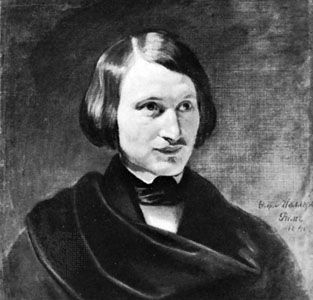Sunday
Mar092008
The Ninth Gate
 Sunday, March 9, 2008 at 07:34
Sunday, March 9, 2008 at 07:34 If you are familiar with this book, you may wonder why director Roman Polanski was so bent on transforming it into a film. The book deals with, on the one hand, a club based on the works of a nineteenth–century Frenchman, and, on the other hand, a triptych of rather macabre illustrated tomes written by a seventeenth–century Italian who was burned at the stake. We are all well aware how many innocents fell victim to inquisitions during that harried time, but this fellow, Aristide Torchia, seems to have had certain forces on his side that led to his downfall. Yes, those forces. And if this conceit is not painfully clear from the first few minutes of The Ninth Gate, this is probably not going to be your type of movie.

Regardless of the original novel’s name, the Dumas story line is both secondary and far less compelling (occupations of the idle rich usually are), so Polanski wisely elects to focus on Dean Corso (Johnny Depp) and his journey through a wicked game of cat and mouse. The problem is that Corso is both the pursued and pursuer, slipping effortlessly from Spain to Portugal and then to Polanski’s beloved France on the trail of three extant copies (the rest were torched with Torchia) of The Nine Gates of the Kingdom of Shadows. Depp is particularly skilled at playing down a character’s inner needs in favor of reacting to his environment in a composed manner. He is never really flustered, although he witnesses both death and evil deeds. And when he understands a chance encounter in a train with a rather seductive blonde (Emmanuelle Seigner, Polanski’s wife) as just that, a chance encounter, we know his character is far too intelligent not to suspect that more devious gears are churning. Yet for some reason he feels that these gears have been in motion for a while now and that his entanglement is inevitable, as evidenced by the very last action he takes.
Without giving too much away, I should add that Polanski does a little tinkering. Corso’s book dealer chum Bernie (James Russo) and the “dishy” (to use the film’s terminology) widow Leona Telfer (Lena Olin) are given slightly different roles, with the latter becoming a foil to the green–eyed stranger who keeps running into Corso at opportune times just like, well, a guardian angel. Then there is the matter of Boris Balkan (Frank Langella), who in the film combines the roles of two of the novel’s personages. Balkan, a fabulously wealthy man and renowned translator and bibliophile, is seen very early on giving a lecture that Corso finds soporific, but that doesn’t discourage him from accosting Corso and showing him the money. The favorite subject of Balkan’s priceless shelves just happens to be the alleged collaborator on Torchia’s work. And if you’re wondering who might be famous enough to have thousands of volumes written about him and still find a reason to help an obscure Italian achieve eternal infamy in the year 1666, of all years, I would recommend rewinding to the beginning to survey the entire audience at Balkan’s lecture.
In the novel Corso has a back story and a soul. He loved a young Jewish woman, but his love for books and money has come to justify their separation, at least when he doesn’t think about her too much. Polanski’s Corso, while perfectly cast, remains a shell seeking some kind of form. Guidance from the stars, belief in the supernatural, skepticism of coincidence and human intentions — all of these may or may not be factors for his actions and statements, which belie his actions. Corso is not a liar, but he’s not honest with himself or anyone else, and in time he begins to understand that the happiest of men are those whose lives permit them to tell the truth as often as possible. There is no one to whom he can open up or reveal the mildest traces of humanity and compassion, but we recognize in this condition so many lives bound by invisible, self–imposed rules and past pain that Corso becomes a real person with real problems. And what he chooses in the end is peace with himself, or whatever is left of it.





